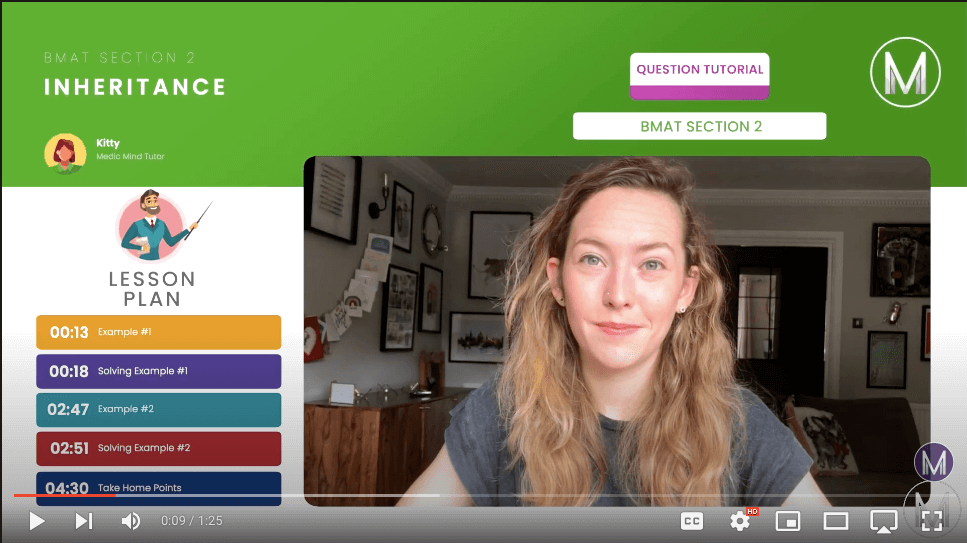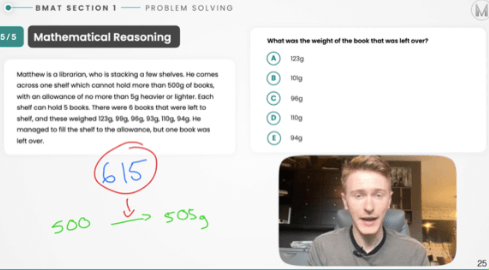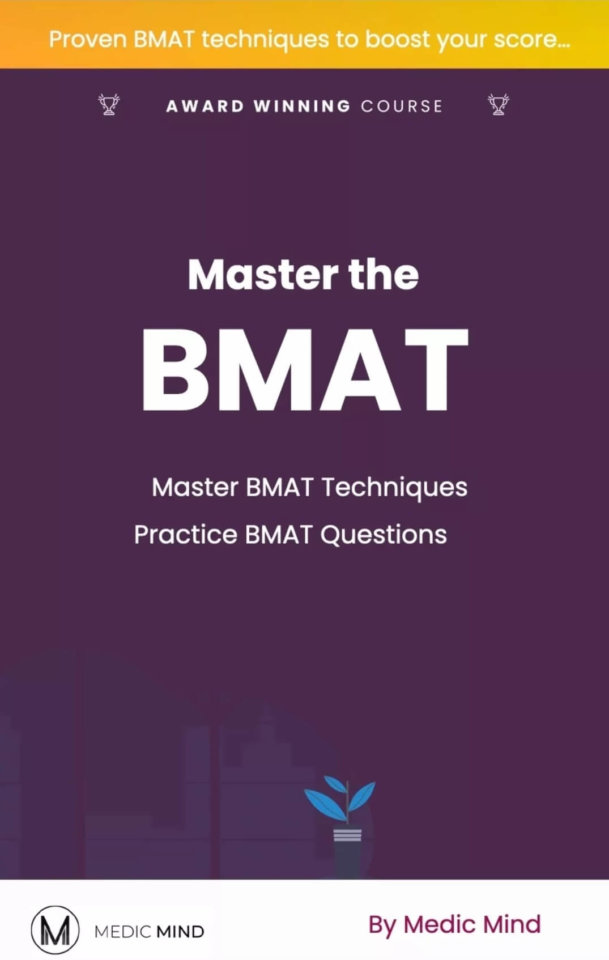Loading...

How do I revise for the BMAT? Revision Plan, Timetable and more.
Preparing for the BMAT can be daunting, but with the right approach and resources, you can ensure that you are well-prepared and confident on the day of the test. In this article, we will provide you with tips and strategies to help you revise for the BMAT and ace the exam.
Understanding the BMAT 2023
The BMAT 2023 is a 2-hour exam that is divided into three sections—section 1 tests aptitude and skills in problem-solving, critical thinking, and data analysis. Section 2 assesses scientific knowledge and application in biology, chemistry, and physics. Section 3 is a writing task that requires you to write an essay on a given topic.
Each section is timed differently, and you will need to allocate your time accordingly during BMAT preparation. Understanding the exam format will help you structure your BMAT revision and focus on the areas where you need the most improvement.

Creating a BMAT revision plan
Before you start revising, it is important to create a revision plan. This will help you to stay organised and ensure that you cover all the necessary topics. When creating a BMAT revision plan, consider the following:
- How much time do you have until the exam?
- How many topics do you need to cover?
- Which topics are you weakest in and need to spend more time on?
- Whether you need to learn new material or focus on practising past papers.
Once you have a rough idea of the above, you can create a timetable. Break down your revision into manageable chunks, such as one or two topics per day, and assign specific times to study them. Make sure to leave time for breaks and other activities to avoid burnout.
Identify your strengths and weaknesses.
Once you have a good understanding of the format of the exam, you should identify your strengths and weaknesses. Take a BMAT past paper or use BMAT practise questions to gauge your current level of knowledge and identify the areas where you need to improve.
Once you have identified your weaknesses, you can focus your revision on those areas. However, don’t neglect your strengths, as they can help to boost your overall BMAT score.
Revise the basic concepts.
While practising past papers and sample questions during BMAT preparation is important, it’s equally important to revise the basic concepts.
Make sure that you have a good understanding of the fundamental principles of biology, physics, and mathematics. Focus on the key concepts and formulas, and make sure that you can apply them to solve problems.
By revising the basic concepts, you can ensure that you have a solid foundation for tackling more complex questions on the exam. This will also help you to identify any areas where you need additional practice or review.
Practice essay writing
Section 3 of the BMAT 2023 requires you to write an essay on a given topic. So, it’s important to practice your essay writing skills for BMAT section 3.
Start by familiarising yourself with the types of topics that are likely to appear on the exam, and practice brainstorming and outlining your ideas.
You should also practice writing full essays under timed conditions so that you get used to the time pressure of the exam. Make sure that your essays are well-structured and coherent, and use evidence to support your arguments.
By practising your essay writing skills, you can ensure that you are well-prepared for Section 3 of the BMAT and can effectively communicate your ideas in writing.
Mix the BMAT revision plan with easy and tough topics
When revising for the BMAT 2023, it’s important to strike a balance between challenging yourself and avoiding burnout. One way to do this is to mix your BMAT revision plan with both easy and tough topics.
Start with the topics that you find easy or that you have a good grasp of, and use these to build your confidence and momentum. Then, move on to the more challenging topics that require more focus and effort.
By alternating between easy and tough topics, you can avoid getting stuck on any one topic and keep your motivation and energy levels high. This can also help to prevent burnout and ensure that you are making steady progress in your BMAT revision.
Use study materials and resources.
There are many study materials and resources available to help you prepare for the BMAT. You can use BMAT textbooks, BMAT online courses, BMAT past papers, and revision guides to help you revise.
Make sure that the study materials you use are up-to-date and relevant to the exam.
Practice, practice, practice
Practice is key when it comes to revising for the BMAT. Use BMAT past papers and BMAT practice questions to familiarise yourself with the types of questions you will encounter on the exam.
Make sure you practice under timed conditions to get used to the time pressure of the exam. You should also review your answers and identify areas where you made mistakes so that you can learn from them.
Practice at the scheduled time
The BMAT is a timed exam, which means that you need to be able to work quickly and efficiently to complete all of the sections in the allotted time.
Practice in the scheduled time to prepare for the time pressure of the exam. Set a timer for each exam section, and aim to complete the questions within the allotted time. This will help you to build your speed and accuracy and get used to working under pressure.
It’s also a good idea to practice working at different times of the day so that you can get used to working under different conditions. For example, you might practice early in the morning or late at night to simulate the conditions of the exam.
By practising in the scheduled time, you can build your time management skills and ensure that you are well-prepared for the time pressure of the BMAT.

Join a study group
Joining a study group can be a great way to revise for the BMAT. You can work with other students preparing for the exam and share tips and strategies. Medic Mind’s new BMAT Virtual School holds weekly group seminars with other students and is the perfect place to study together with the support of a medical expert.
You can also use study groups to practise your communication skills, which will be important for Section 3 of the exam. You can work on developing and presenting ideas and give and receive feedback on your performance.
Take care of yourself.
Finally, it’s important to take care of yourself when revising for the BMAT. Make sure that you get plenty of sleep, exercise regularly, and eat a healthy diet.
Taking care of your physical and mental health will help you stay focused and motivated during your BMAT revision period and ensure that you are in the best possible shape on the exam day.
Conclusion
Revising for the BMAT can be challenging, but with the right approach and resources, you can increase your chances of success. Creating a study plan, utilising official BMAT resources, working with a study group, and using online resources are all effective strategies to help you prepare for the exam.
Remember to stay motivated, track your progress, and set realistic goals. With dedication and hard work, you can achieve your goal of acing the BMAT and getting into your dream medical school. Good luck!
FAQs:
→ Q: When should I start revising for the BMAT?
It is recommended that you start revising for the BMAT at least three months before the exam. This will give you enough time to cover all the necessary topics and practice past papers.
→ Q: How many hours per day should I spend revising for the BMAT?
The number of hours you should spend revising daily will depend on your individual needs and schedule. However, it is recommended that you aim to study for at least two hours per day.
→ Q: What resources are available for revising the BMAT?
There are several resources available for revising for the BMAT, including textbooks, online courses, and practice papers. You can check out the free BMAT resources on our website and the official BMAT website also has resources to use.
→ Q: How can I improve my critical thinking skills for Section 1?
A: You can improve your critical thinking skills by practising questions that require you to analyse and interpret data and information. Using online resources and practise questions are a good idea to familiarise yourself with the question types.
→ Q: How can I prepare for the essay task in Section 3?
A: You can prepare for the essay task by practising writing essays on a range of topics, analysing sample essays, and seeking feedback from peers or a 1-1 BMAT tutor. Be sure to think about the structure of your essay and practise timing techniques to help you on the day.
With over 1000 BMAT questions, mock paper walkthroughs, tips & advice, and more!
Get support with the BMAT essay through personalised support and advice
Personalised private lessons, tailored to your BMAT needs





Was this article helpful?
Still got a question? Leave a comment
Leave a comment